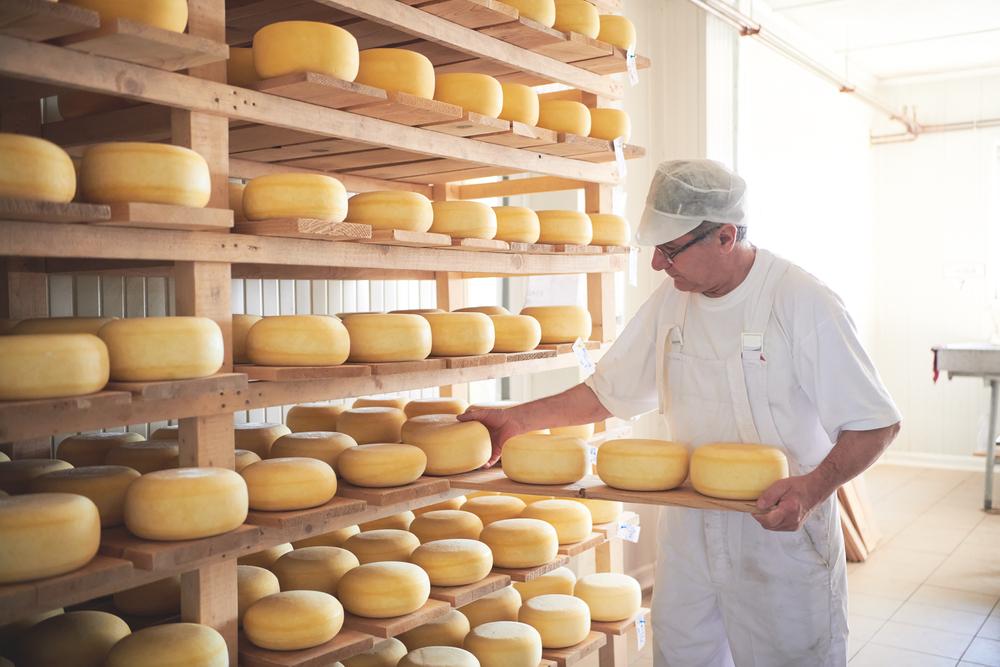Alnur Truly Halal Services
Dairy & Cheese

Halal Certification for Dairy
Particularly if they adhere to Islamic dietary regulations, consumers and manufacturers endeavor to be as careful as possible to ensure the ingredients they use are wholesome and safe to ingest (halal). To stay in compliance, producers who use cheese ingredients look to engage with halal-certified suppliers.
Additionally, Halal consumers who use cheese in the kitchen might not always consider the processes used to separate the whey from the curd in the milk. Animal rennet, which may or may not be healthy or clean, is used to make a lot of cheeses. To separate the curd required to manufacture cheese, plant-based or microbial enzymes are used in the production of halal cheese and other vegetarian cheeses.
Source of Rennet
A collection of enzymes called animal rennet is created in the stomachs of some mammals. Chymosin, the major ingredient, causes the milk to curdle together with other enzymes. This is inappropriate for halal cheese because it is impossible to know how the cow was killed or if the rennet came from a cow or another animal.
Other varieties of rennet are
- produced from plants such as thistles, nettles, and others
- yeast and fungi-derived microbial enzymes
- sources with genetic modifications
Manufacturers use the rennet that is used to make cheese. The producers will utilize plant-based or microbiological rennet if it is crucial to appeal to vegetarians and Muslims.
Instead of learning about every aspect of cheese production, the consumer can verify that the cheese you are consuming is halal by looking for a halal certification label on the package. It may not be enough to simply read the components, thus these certificates are crucial. Manufacturers occasionally switch the sort of rennet used without telling Muslim customers. Consumers who eat vegetarianism and halal food can feel secure by locating the certification.
You may assist the halal business and encourage producers that want to cater to halal consumers by selecting cheese products that are halal-certified. These goods have been halal-certified through the appropriate methods.
Other Dairy Products
Yogurt
Gelatin, which can come from a variety of sources, is used to thicken several yogurt products. If it comes from beef or pork, it must be halal-certified in order to be accepted for consumption. Fish gelatin or plant thickeners can be used in place of animal-derived gelatin, but halal certification will give halal consumers who are concerned about the ingredients in their food the much-needed peace of mind. And because yogurt is a common food in areas where halal diets are the norm, including the Middle East and Northern Africa, it is all the more crucial to mention that yogurt producers certify their goods.
Whey
One of the market’s most profitable and quickly expanding segments is whey protein. Whey is halal on its own, but it is also produced using rennet, which, as you may recall, can be processed using enzymes derived from animals. Whey must therefore be certified in order to guarantee its suitability for consumption.
Desserts
Cakes and other dairy delights, like ice cream, are harder to verify since their ingredient lists are frequently lengthy. Without certification, halal customers typically choose to play it safe and refrain from buying any desserts if they contain gelatin, lard, or alcohol-based flavorings. By becoming certified, halal consumers can avoid the hassle of having to evaluate whether or not their treats are fit for consumption.
Companies can demonstrate trust and inspire confidence by achieving Halal certification.
Obtain Halal Certification for your private brand label product from Ant8s.org. Learn about the process of obtaining Halal Certification.
A contract manufacturer’s products range from startup products to established international brands. Particularly, contract manufacturers tend to have better cost structures, higher scalability, and more efficient supply chains. This includes being able to handle regulatory requirements and quality assurance, for which the manufacturer may have extensive expertise.
In order to maintain Halal integrity throughout the certification process, working with 3rd party manufacturers poses unique challenges that require teamwork from all stakeholders. As a short summary, this article describes the qualifications for Halal, the certification process, the licensing situation for certifications, and the advantages of Halal certifications.
Qualification
Two fundamental elements determine the qualification of a product :
- The product
- The production facility
The Product
Qualification begins with the product. After gathering documentation and data on the raw materials and ingredients, Ant8s technical team determines whether the product qualifies as halal.
Among the main criteria for evaluation are:
- Residues of Ethanol greater than 5000 parts per million
- Derivatives from Animals other than milk and honey
The Production Facility
Production Facilities are the second element of qualification.
The second element of qualification pertains to the production facility. During every step of the process the facility must maintain the integrity of the Halal identity of its products in order to qualify for Halal certification.
To make the certification process as efficient as possible Ant8s integrates with the existing systems of quality such as GMP, NSF or SQF to assess the production facility. So lets say if you are using a GMP protocol for your warehouse there are high chances that they will also meet Halal requirements, thanks to Ant8s seamless integration.
As you would with nut-free or gluten-free products, you can look at Halal certification for both the product and production facility as an allergen. To ensure that the facilities are clean, the product ingredients, production methods and cleaning steps are scrutinized.
Please feel free to apply with no obligations if you want your products qualified at no cost.